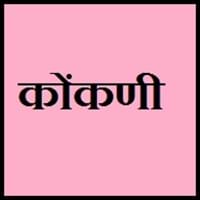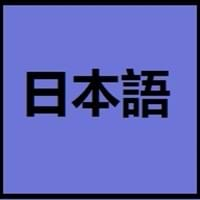Konkani vs Japanese
National Language
India
Japan
Second Language
Not spoken in any of the countries
Not spoken in any of the countries
Speaking Continents
Asia
Asia, Pacific
Minority Language
Not spoken in any of the countries
Palau
Regulated By
Govenment of Goa
Agency for Cultural Affairs (文化庁) at the Ministry of Education
Interesting Facts
- Fr. Thomas Stevan wrote the first book in Konkani in 1651.
- Sahitya Academy recognized konkani as a language in year 1976.
- In Japanese Language, there are 4 different ways to address people: kun, chan, san and sama.
- There are many words in Japanese language which end with vowel letter, which determines the structure and rhythm of Japanese.
Similar To
Marathi
Korean Language
Derived From
Sanskrit Language
Not Available
Alphabets in
Kokani-Alphabets.jpg#200
Japanese-Alphabets.jpg#200
Writing Direction
Left-To-Right, Horizontal
Left-To-Right, Horizontal, Top-To-Bottom
Hello
Namaskar
こんにちは (Kon'nichiwa)
Thank You
Dev Borem Korum
ありがとう (Arigatō)
How Are You?
kaso assa?
お元気ですか (O genki desu ka?)
Good Night
Rati Boren Zavonn
おやすみなさい (Oyasuminasai)
Good Evening
Sanj Borem Zavonn
こんばんは (Konbanwa)
Good Afternoon
Not Available
こんにちは (Konnichiwa!)
Good Morning
Dis Borem Zavonn
おはよう (Ohayō)
Please
Chike
お願いします (Onegaishimasu)
Sorry
Maf kor
ごめんなさい (Gomen'nasai)
Bye
Adeus
さようなら (Sayōnara)
I Love You
hav tujo mog korta.
愛しています (Aishiteimasu)
Excuse Me
upkar korxi
すみません (Sumimasen)
Where They Speak
Goa
Kagawa
How Many People Speak
Not Available
Dialect 2
Not present
Hakata
Where They Speak
Not Available
Fukuoka
Dialect 3
Not present
Kansai
Where They Speak
Not Available
kansai
Alternative Names
Konkan standard, Bankoti, Kunabi, North Konkan, Central Konkan, Concorinum, Cugani, Konkanese
Not Available
French Name
konkani
japonais
German Name
Konkani
Japanisch
Pronunciation
kõkɳi
/nihoɴɡo/: [nihõŋɡo], [nihõŋŋo]
Ethnicity
Konkanis
Japanese (Yamato)
Language Family
Indo-European Family
Japonic Family
Subgroup
Not Available
Not Available
Branch
Not Available
Not Available
Early Forms
No early forms
Old Japanese, Early Middle Japanese, Late Middle Japanese and Early Modern Japanese
Standard Forms
Kokani
Japanese
Language Position
Not Available
Signed Forms
Indian Signing System (ISS)
Signed Japanese
Scope
Individual, Macrolanguage
Individual
ISO 639 1
No data available
ja
ISO 639 6
Not Available
Not Available
Glottocode
goan1235
nucl1643
Linguasphere
No data available
45-CAA-a
Language Type
Living
Living
Language Linguistic Typology
Subject-Object-Verb
Subject-Object-Verb
Language Morphological Typology
Not Available
Agglutinative, Synthetic
Konkani and Japanese Language History
Comparison of Konkani vs Japanese language history gives us differences between origin of Konkani and Japanese language. History of Konkani language states that this language originated in 1209 A.D. whereas history of Japanese language states that this language originated in 1185. Family of the language also forms a part of history of that language. More on language families of these languages can be found out on Konkani and Japanese Language History.
Konkani and Japanese Greetings
People around the world use different languages to interact with each other. Even if we cannot communicate fluently in any language, it will always be beneficial to know about some of the common greetings or phrases from that language. This is where Konkani and Japanese greetings helps you to understand basic phrases in Konkani and Japanese language. Konkani word for "Hello" is Namaskar or Japanese word for "Thank You" is ありがとう (Arigatō). Find more of such common Konkani Greetings and Japanese Greetings. These greetings will help you to be more confident when conversing with natives that speak these languages.
Konkani vs Japanese Difficulty
The Konkani vs Japanese difficulty level basically depends on the number of Konkani Alphabets and Japanese Alphabets. Also the number of vowels and consonants in the language plays an important role in deciding the difficulty level of that language. The important points to be considered when we compare Konkani and Japanese are the origin, speaking countries, language family, different greetings, speaking population of these languages. Want to know in Konkani and Japanese, which language is harder to learn? Time required to learn Konkani is 4 weeks while to learn Japanese time required is 88 weeks.





